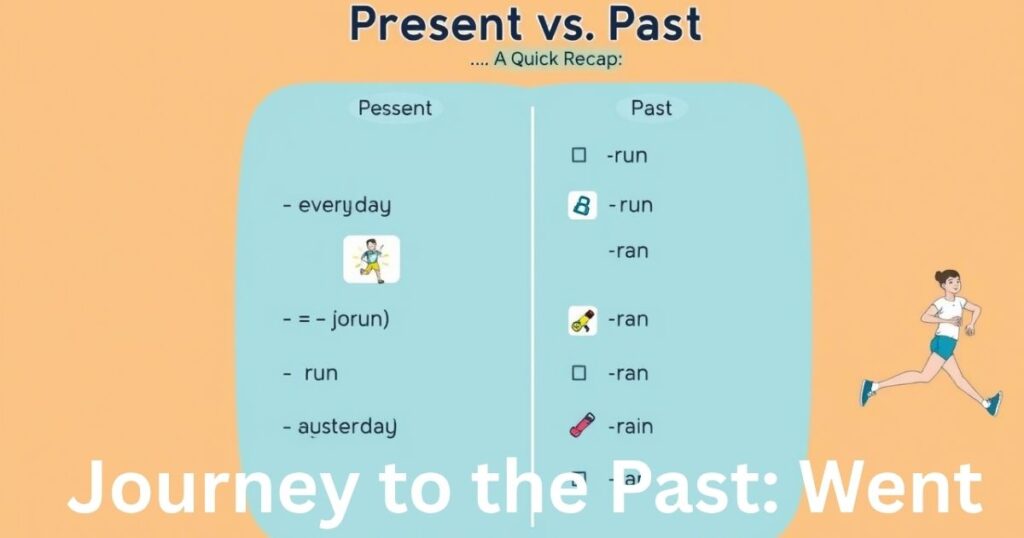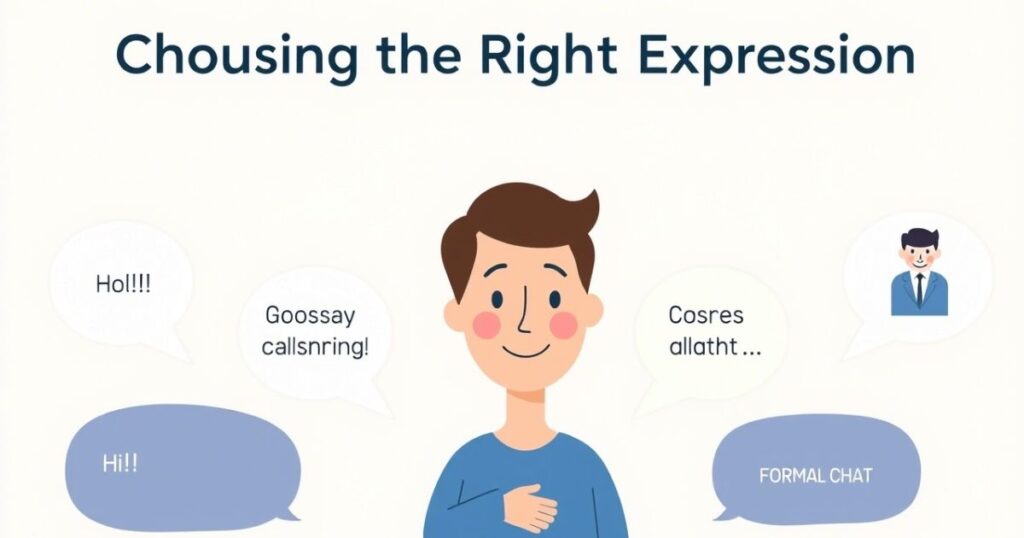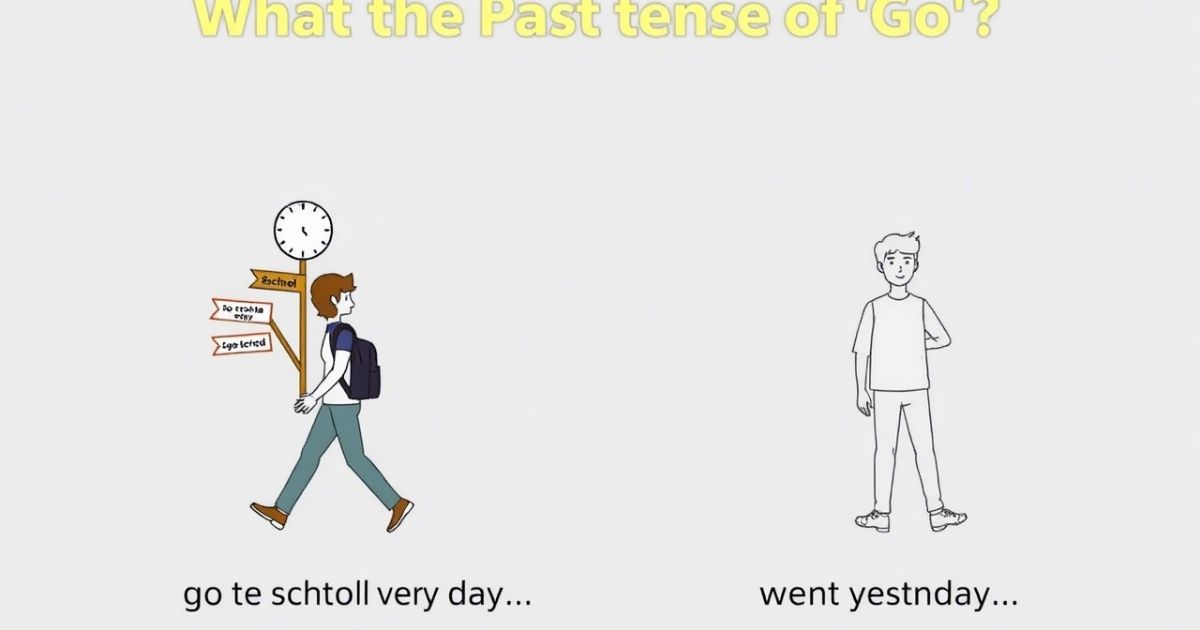When learning English, understanding verb tenses is crucial, especially when it comes to irregular verbs like “go.” One common question many learners have is, What is the Past Tense of “Go”? In simple terms, the past tense of “go” is went, which can be confusing since it doesn’t follow the typical “ed” pattern for regular verbs.
Knowing how to use it correctly will help you talk about actions that happened in the past.
Whether you’re talking about a trip you took or an activity you did yesterday, mastering the past tense of “go” will make your sentences sound more natural. So, if you’ve ever wondered, What is the Past Tense of “Go”?, now you know it’s gone! Let’s dive into some examples to better understand its use.
Understanding the Past Tense

The past tense is used when talking about actions that have already happened. For most regular verbs, you can add “ed” to the base form to create the past tense. For example, “talk” becomes “talked,” and “jump” becomes “jumped.” However, irregular verbs like “go” don’t follow this rule. Instead of saying “goed,” the past tense of “go” is “went.” This is part of what makes the English language tricky but also interesting.
Let’s think about how we use “go” in the present tense. You might say, “I go to the store every day,” meaning it’s something you do regularly. But when talking about the past, like when you visited the store yesterday, you would say, “I went to the store.” This shows the shift from the present to the past. It’s a small change in the word, but it’s a big difference in meaning.
Understanding how to use the past tense of “go” correctly helps you sound more natural in English. Whether you’re talking about a recent trip to the beach or reminiscing about a summer adventure, getting the past tense right is key to clear communication.
Read this Also: Arised or Arose: What’s the Correct Past Tense of Arise?
What It Means:
The verb “go” means to move from one place to another. In the present tense, you might say, “I go to the park every day.” This shows that you do it regularly. However, when you want to talk about something that happened earlier, like last year, you switch to the past tense, “went.” For example, “Last year, I went to the mountains.”
The word “went” refers to an action that has already been completed. It’s no longer something happening now, but something that occurred in the past. This helps us communicate the difference between ongoing actions (like going somewhere now) and actions that have already happened (like going on a journey to a new city).
It’s interesting to note that “went ” comes from an older word, “wend,” which means to go or travel. This shows how English words change over time, a phenomenon known as etymology. The word “went” might seem strange when compared to how we form past tenses for other verbs, but this is just how the language has evolved.
Examples:
Now let’s look at a few examples to see how “went” works in real-life situations. Here are a couple of sentences that use “went” correctly:
- “Yesterday, I went to the hospital to visit a friend.”
- “We went on a trip to the mountains last summer.”
Notice how both sentences describe events that already happened. The action was completed in the past, which is why we use “went” instead of “go.” You’ll often hear people say things like, “I went to the store earlier today,” or “We went for a walk in the park.” This helps make the story feel grounded in the past, not in the present moment.
It’s also important to understand how to form questions with “went.” For example:
- “Did you go to the beach last summer?”
- “Where did you go for your last vacation?”
In these cases, “did” is used to form the question, but you still use “go” after “did.” The past tense of “go” stays as “go” in these questions.
Journey to the Past: Went

As we look deeper into the word “went,” we can understand that this form of “go” is tied to an older verb called “wend.” “Wend” has a similar meaning to go or travel. So when you say “I went to the hotel last week,” you’re using a form of a word that has been around for a very long time. This might seem complicated, but it’s actually one of the many twists in the English language that make it so rich and fascinating.
The use of went in English is an example of suppletion, which means using a word that isn’t directly related to the verb’s root form. It’s a bit like how we say “better” instead of “good” when comparing things. It’s not a rule you need to worry about every day, but it’s good to know that English doesn’t always follow the same rules as other languages.
When you think about “went,” imagine a journey. Picture Naomi and Sonia taking a road trip, leaving their house and driving for hours, all the way to the beach. After they’ve had a great time, they would say, “We went to the beach.” It’s a past action, marking an experience that’s already happened.
Example:
Let’s look at another example:
- “Petr had already gone to the dentist when I called him.”
In this sentence, “gone” is the past participle of “go,” which you use with the verb “had” to show that something happened before another event in the past. This is a little different from just saying “went,” but it still involves the same action of moving from one place to another.
The past participle “gone” is often used in combination with “had” or “have” to describe actions completed before another past event. It’s important to know the difference between “went” and “gone” to get your tenses right.
Present vs. Past: A Quick Recap

Here’s a quick recap to help you remember when to use “go” and when to use “went.” You use go when the action is happening right now or in the future:
- “I go to the store every day.”
- “Tomorrow, I will go to the park with my friends.”
But you use went when talking about something that already happened:
- “I went to the store yesterday.”
- “Last summer, we went to the mountains.”
Remember, “go” is for the present, and “went” is for the past. It’s simple once you practice, and you’ll find that you use “went” naturally when telling stories or talking about past experiences.
Examples:
Now, let’s see some more examples of “go” and “went” used correctly in sentences:
- “I go to the train station every morning.”
- “Last week, I went to a friend’s house to hang out.”
By practicing these examples, you’ll start to understand when to use “go” and when to switch to “went.” It’s all about the timing of the action and whether it’s happening now or in the past.
Choosing the Right Expression

Knowing when to use “go” and when to use “went” will help you sound more fluent in English. In casual conversations, you might say, “I go to the hospital every week,” or “We go to the pool every summer.” But if you’re talking about something that happened in the past, you would say, “I went to the hospital yesterday,” or “We went on a road trip last year.”
When telling a story, using the right tense makes your language more natural and clear. For example, Marie might say, “I go to the store all the time,” to explain her regular habit. But if she’s talking about last week’s trip, she’ll say, “I went to the store last week.” These small shifts in language help the listener know exactly when something happened.
Examples:
To wrap it up, here are a few more examples to clarify:
- “I go to school every day.”
- “I went to a different school when I was 16.”
- “I go to the car when I’m in a hurry.”
- “We went to the restaurant last night.”
Conclusion
understand the Past Tense of “Go”? is essential for mastering English grammar. The past tense of “go” is went, and it’s used when talking about actions that happened in the past. It’s a simple rule to follow once you practice using it in sentences.
Whenever you’re unsure, just remember: go is for the present, and went is for the past. Whether you’re talking about a journey, a trip, or your daily routine, knowing the difference will help you communicate clearly. So, next time someone asks What is the Past Tense of “Go”?, you’ll know the answer! Just say, “It’s gone.”

Gramcoachpro is your go-to platform for mastering grammar, writing, and communication skills. If you’re a student, teacher, or content creator, we provide easy-to-understand tips, examples, and tools to improve your language — fast and effectively. Our mission is to make better writing simple and accessible for everyone.

